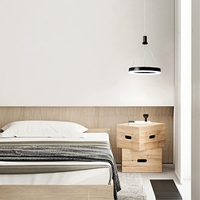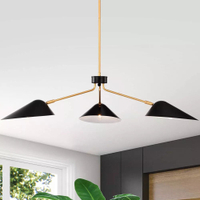Home office lighting ideas – 9 ways to light up the desk, walls, corners and ceiling
Give your home office lighting ideas a boost with these decorative yet functional fixtures that guarantee high productivity
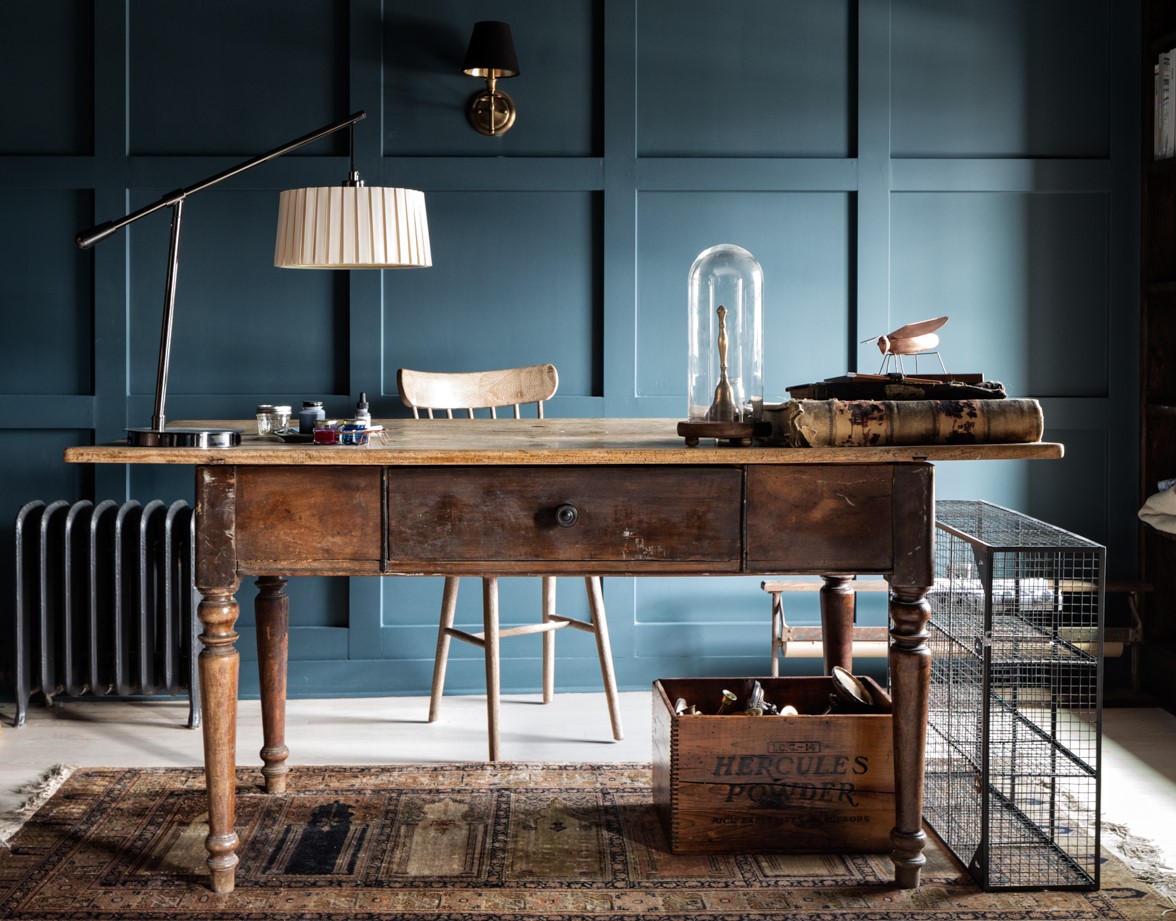

Home office lighting, when planned right, can make a big difference to your mood, productivity, and even the decor of your workspace. Usually, while planning this space, homeowners let important aspects like choosing the right fixtures and placing them in the right positions fall to the wayside. Pretty soon, you feel like your home office is hitting a rut.
One way to ensure you love working in this space, without any hassle is by assessing the current state of your office lighting. Even a simple bulb hung over your computer, or a sleek lamp next to your desk can make all the difference.
If you are ready to give this space some love and want to freshen up its vibe, we have all the ideas for you. Take a look at what the design pros from the industry suggest and take home some inspiring home office ideas.

Aditi is a homes writer and editor with several years of experience. Her articles, backed by expert insights, offer suggestions aimed at helping readers make the best home design choices. For this article, she spoke to top designers to find out the best way to light the home office.
9 home office lighting ideas that will dispel Monday blues
To make sure you work effectively in the home office, the placement of task lights is of utmost importance.
'Although it may appear simple, positioning is critical,' says Meenu Agarwal, founder and interior designer at MADS Creations. 'Reading lights should be set to the side and behind you so that they may beam straight onto the page of your books. This will equally illuminate your environment without being too direct or producing harsh shadows.'
1. Install an overhead light above the desk
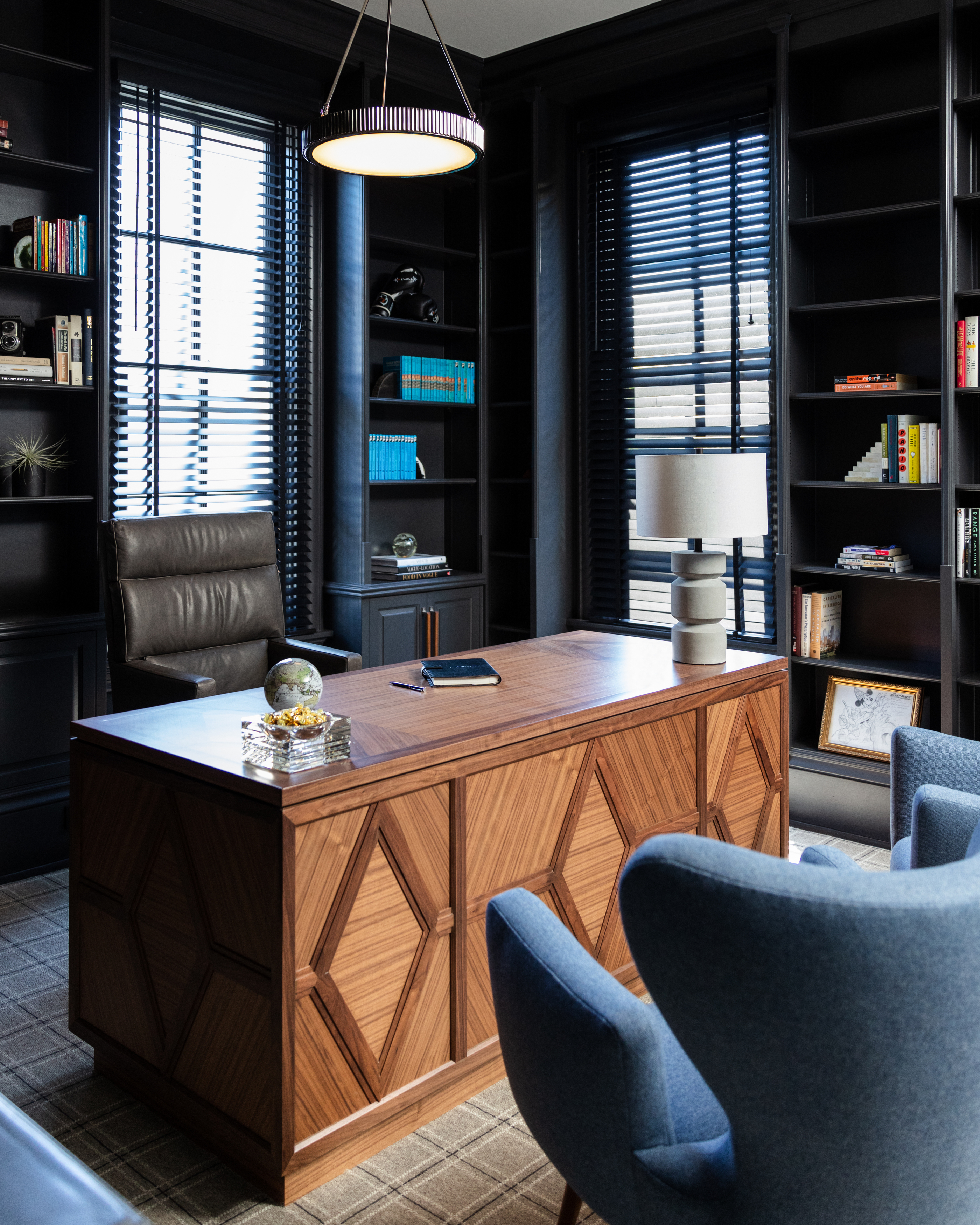
To work effectively from home, choose an overhead light that casts a pool of light directly on your working area, so that the work you're doing – be it writing, reading, or even looking at the computer – can be done with ease, without any shadows falling on the work surface.
'Multiple light sources are key in a hybrid workspace,' says Emilie Munroe, founder of Studio Munroe. 'Natural light, desk lamp, overhead pendant, and recessed cans. The more angles that provide light on the workstation and worker, the more versatility you experience whether it's handwriting, typing, or working on screen. '
LED Round Dimmable Pendant Light from Amazon
This modern ring LED pendant is a lightweight, simple yet effective fixture, ideal for the kitchen island, study room, living room, or dining room area.
2. Layer artificial lights with natural light
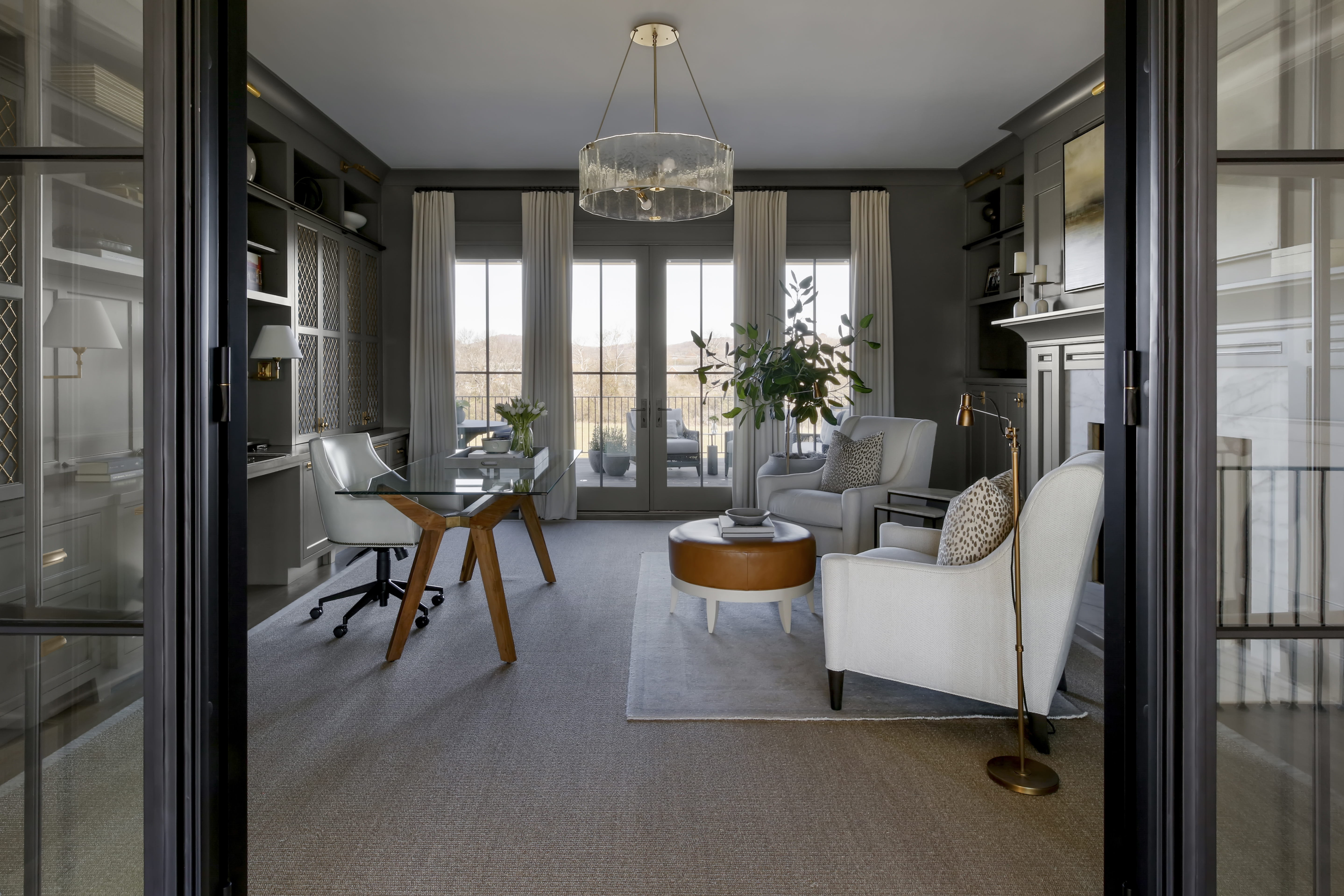
If you think about it, some of the best commercial office designs tend to include large windows, atriums, and skylights to welcome as much daylight as possible, and to make the occupants comfortable. Your home office should be no different.
Along with artificial ambient light, open up windows and skylights to not only expand the views of the outdoors but also to bring in natural light. This will reduce eyestrain and make the work environment more enjoyable and productive. In your apartment office, position your desk near a window with the chair facing the view.
One thing to keep in mind is that while natural light can help reduce eyestrain, it can also cause glare. Don't forget to add shutters or blinds to filter light. You can also consider adding an antiglare film, like this one from Amazon , to your computer screen to reduce glare from the sun and overhead lights.
3. Bring in a desk lamp for task lighting
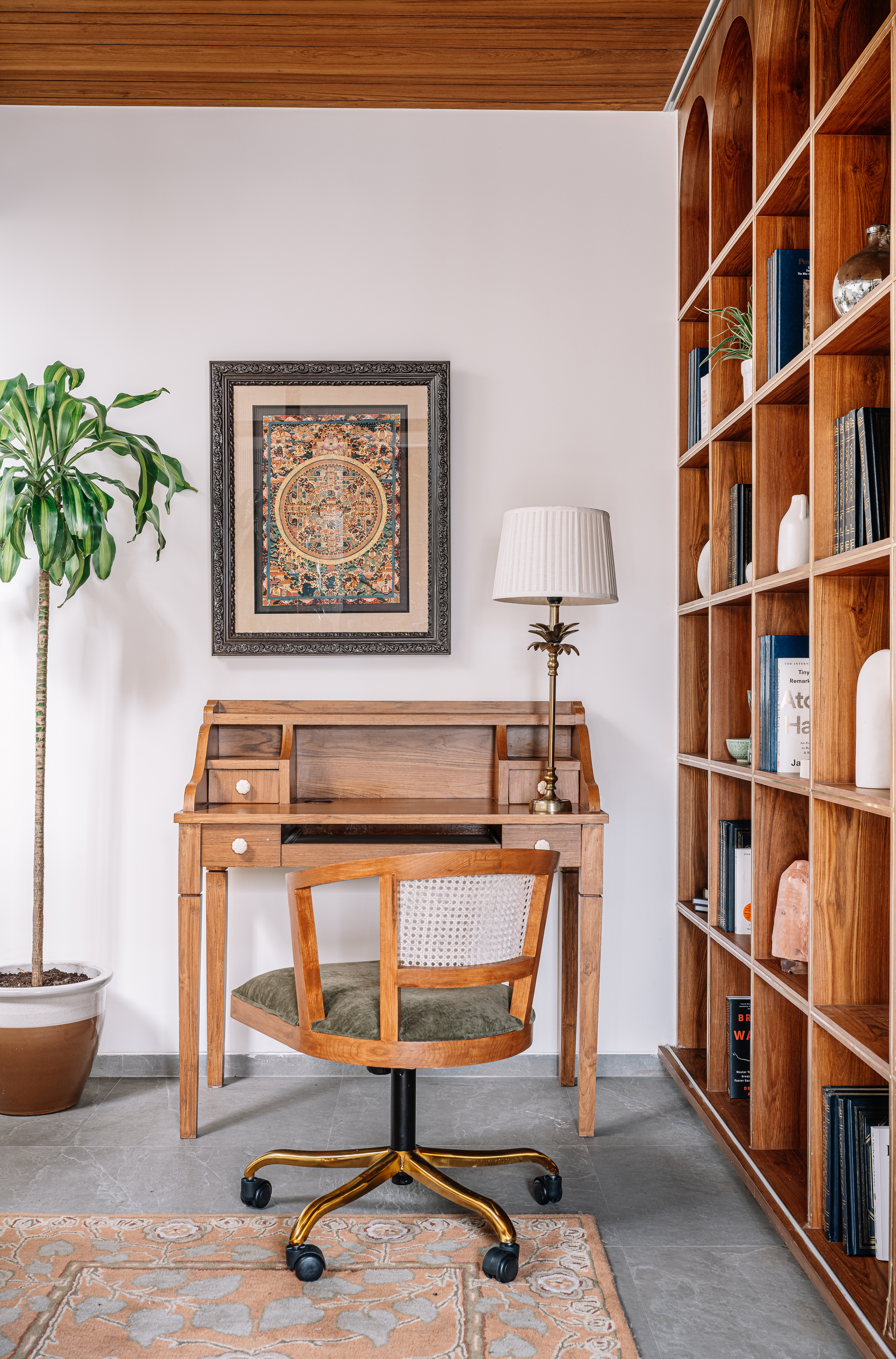
This space is a library cum small home office, dominated by wood. One desk idea is to include a lamp, this not only sets a classic tone and offers wonderful task lighting for work, reading, and more, but also adds a decorative touch to the otherwise brown-toned room.
'The wooden desk next to the bookshelf is used to read and work,' says Akshita Mehra, founder of Studio Goya. 'A table lamp adds task lighting and adjustable spotlights have been added to focus on the bookcase.'
'For a green touch to the space we added two houseplants – Massangeana and Brassia, to improve the air quality of the space which, in turn, will help with concentration and can also reduce stress levels,' says Akshita. 'The rug was sourced from Jaipur Rugs and the artwork was a hand-painted Thangka from Darjeeling that we had bought and framed.'
4. Or even a standing lamp will do
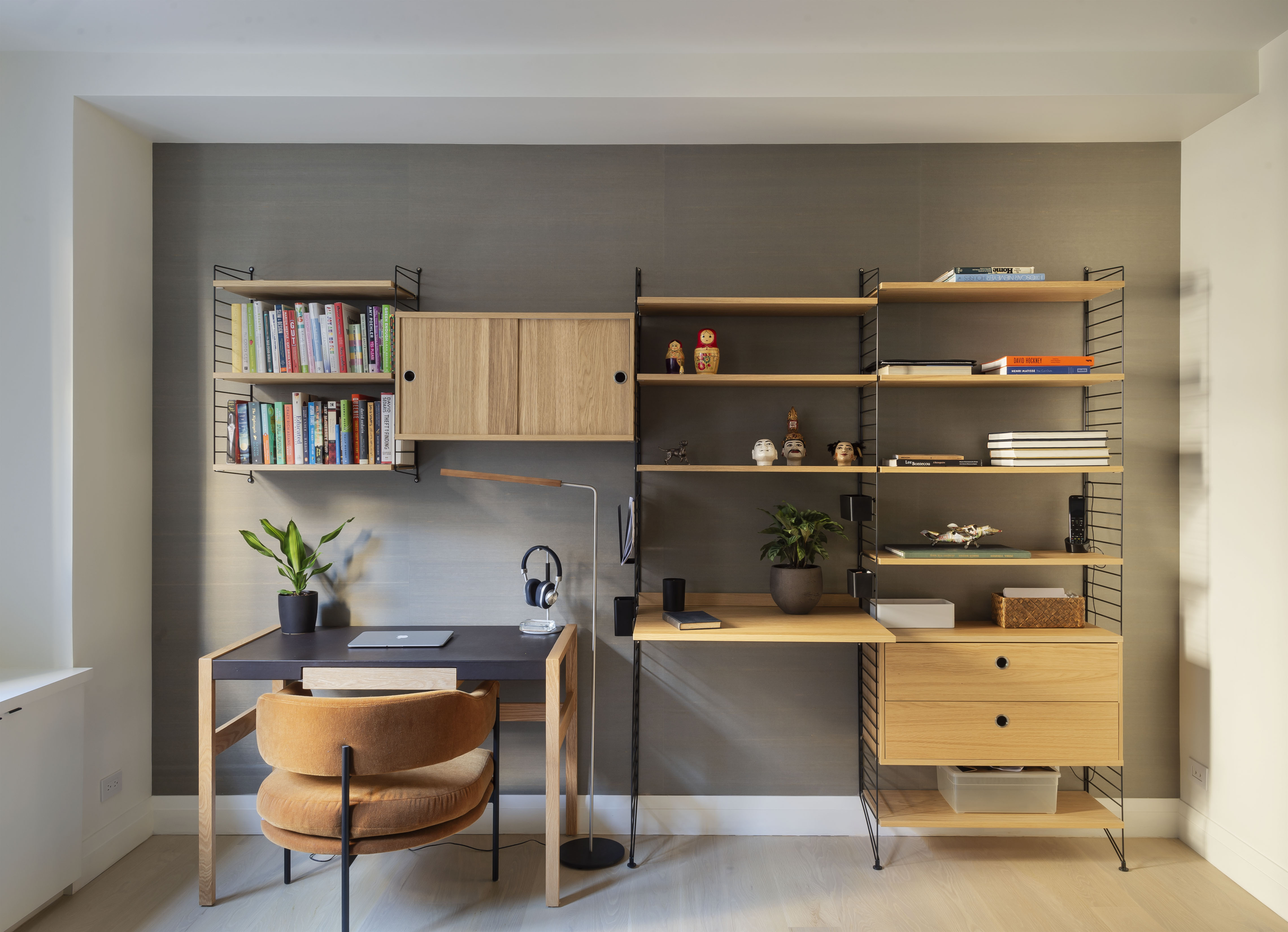
Having enough of the right kind of lamps can make a room feel instantly cozy and welcoming. While desk lamps are close-to-work, focused lighting fixtures, standing lamps not only make work easier, but also add to the room's decorative quality.
Standing lamps help fill negative space, provide illumination to ignored areas, and even offer subtle, nighttime lighting. This sleek, slender light in this project designed by General Assembly works perfectly in the space. Its light presence does not hamper the room's square footage, and it sits snugly next to the office desk. Its design too complements the rest of the room.
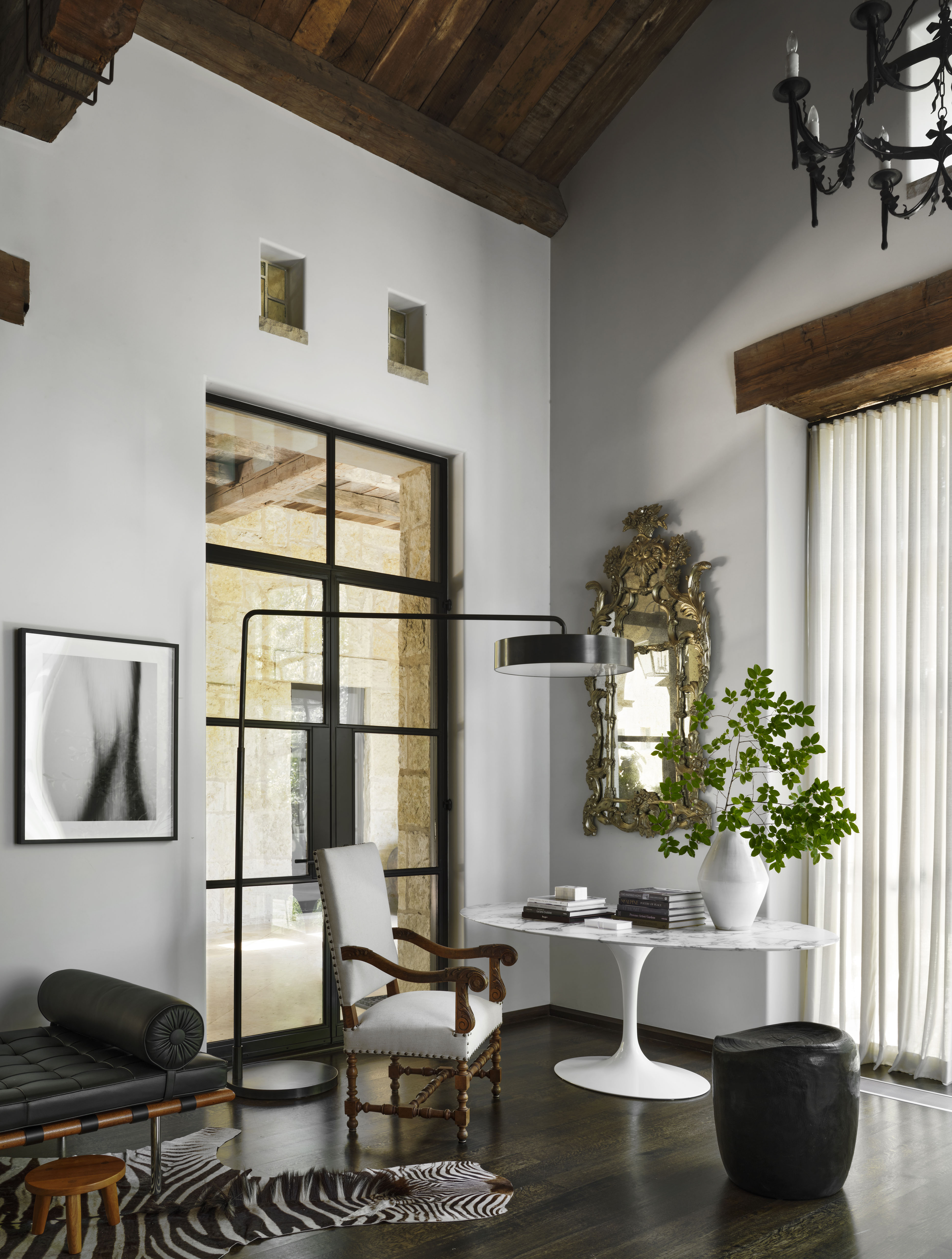
While speaking of standing lamps and their placement, these flexible lighting pieces can be placed behind the home office chair as well, as they can squeeze right into awkward spaces or even act as a divider between areas.
Take this space designed by Chad Dorsey for instance. The home office features a sculptural lamp that curves over the chair, and provides focused lighting above the seat and the desk. The piece also adds a decorative quality to the room and makes the workstation an eye-catching vignette. Some pieces are made with movable components, so you can shine the light right where you need it most.
5. Add a decorative touch with a unique chandelier
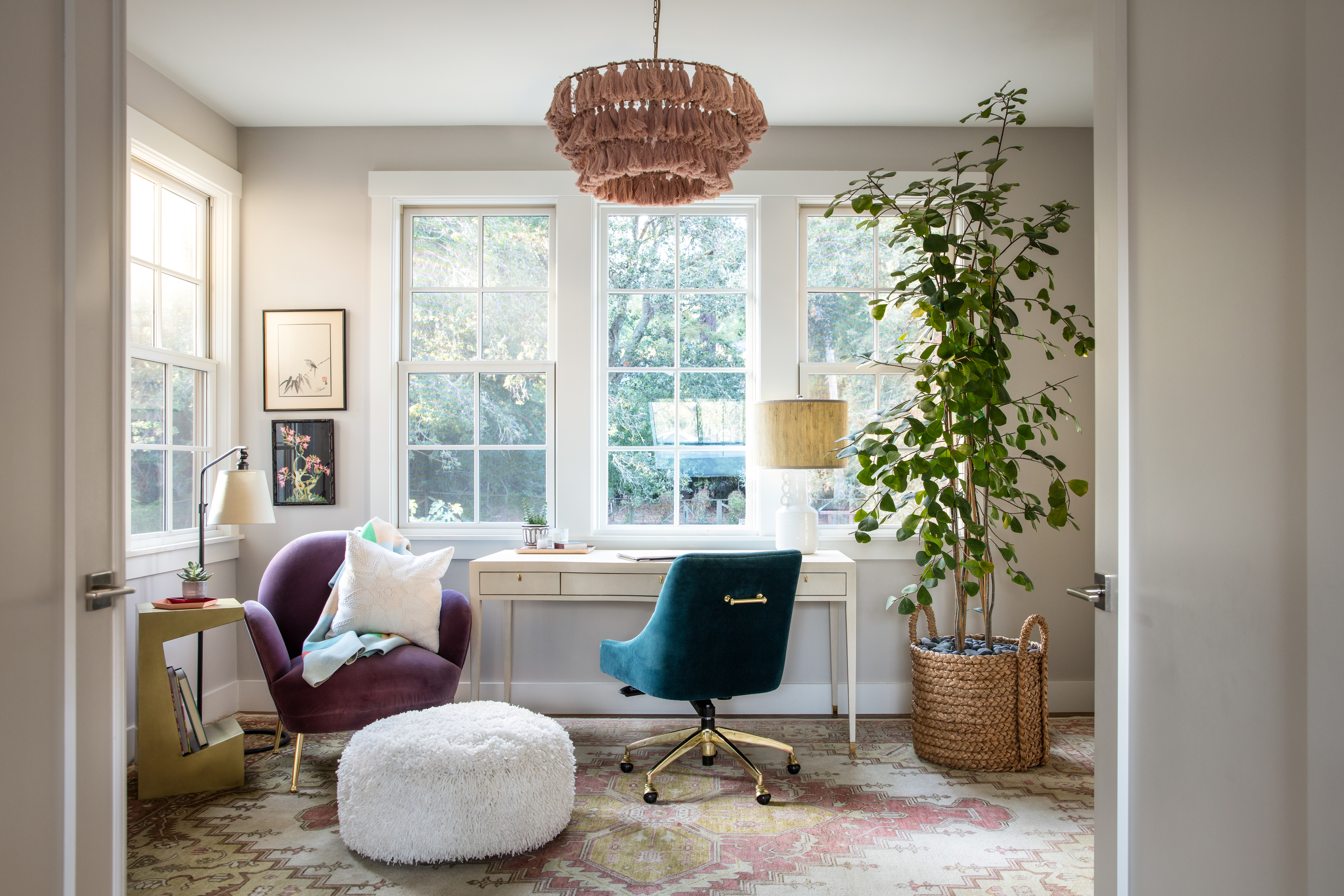
Whether or not you have client meetings at home, a workspace that is stylish, inspiring, and functional could inspire and motivate you to go the extra mile at work. After all, who wants to show up to work in sweatpants when your office looks like a million bucks? One great way to do this is with chandeliers, that have an inherent charm to them.
Choose a piece that looks distinct; one that sets your modern home office apart from all other rooms in the home. Take this space for instance, where the look and feel of this room are, accentuated by a fabric chandelier, and a rug, both of which offer textural coziness and make this room one you wouldn't mind working in for hours.
'Just because you are designing a workspace, don't skip a statement chandelier instead of a desk lamp,' says Emilie. 'Your office should have personality and function, and nothing brings a touch of glam and interest more than a feature light fixture.'
6. Use wall sconces to highlight an architectural feature
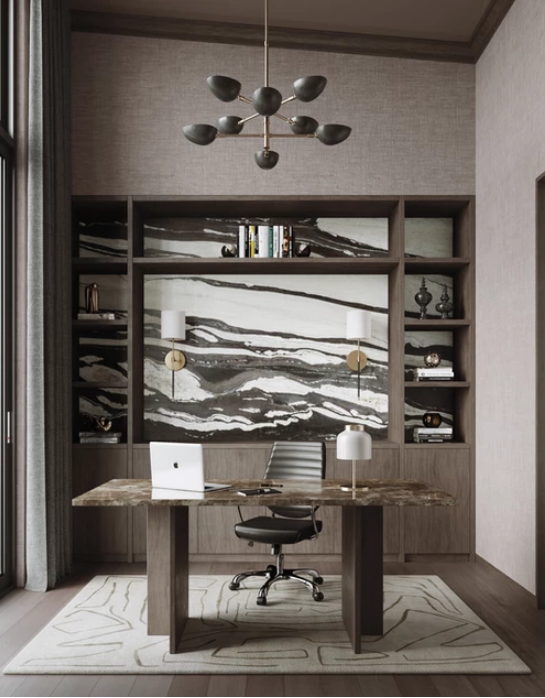
Whether two sconces frame the workspace or a centered sconce anchor it, wall lighting in an office feels appropriately library-like. Not only do these provide wonderful focused lighting, they also help highlight important elements in the home like artworks, cornices, panels, or more.
Wall sconces are also great space savers in smaller spaces, but don’t be fooled by their size. The wall-mounted ones often use powerful ‘laser beamed’ LED lighting, which is also energy efficient.
Chandelier Matte Black from Target
This chandelier ideal for kitchens, bedrooms, living rooms and even home offices is finished in matte black, with a bronze finish.
7. Don't forget to light corners
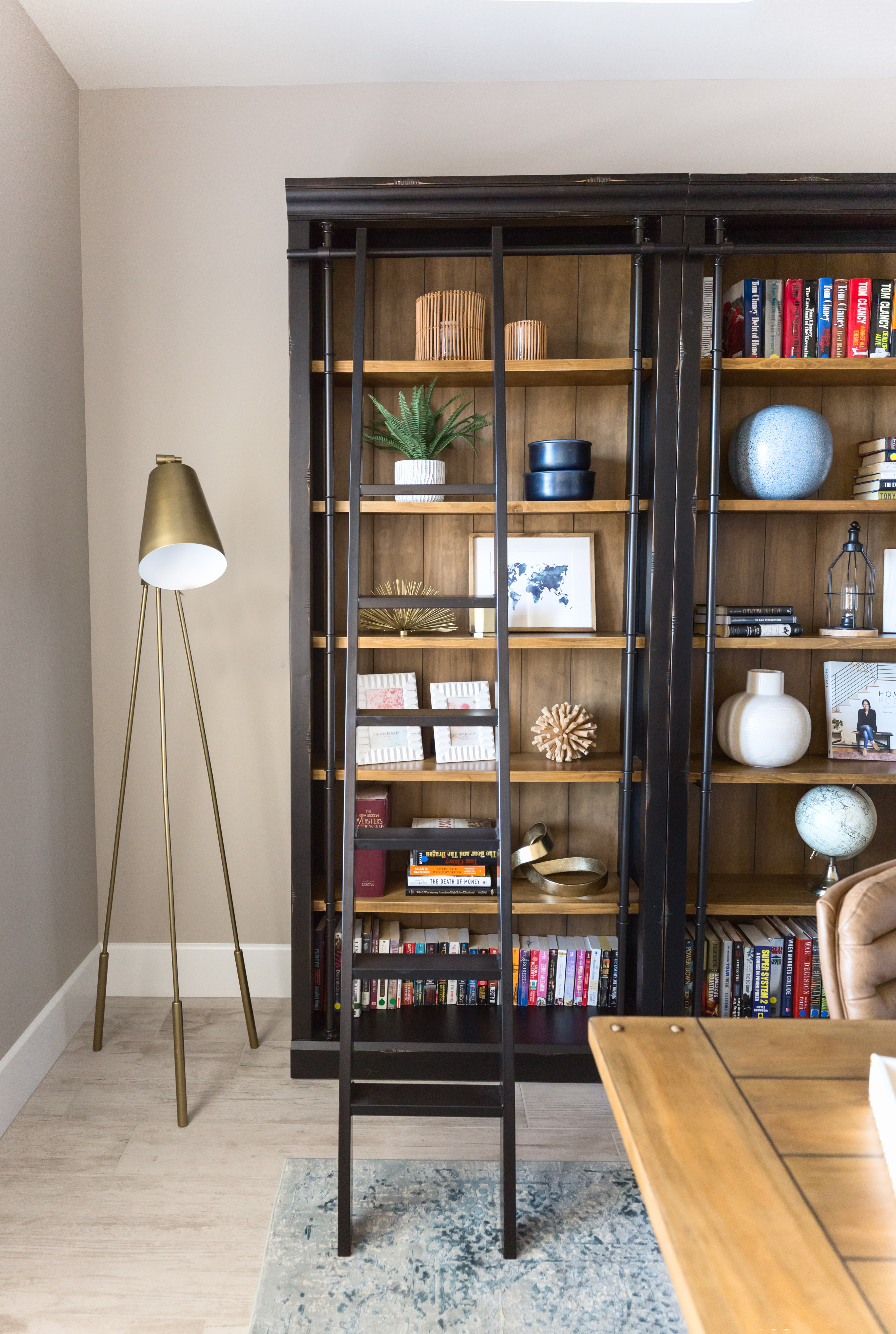
If you happen to have a large home library cum office, or home office for him and her, the chances are that the work areas have been spread out, leaving a few spaces and corners empty. For an effective lighting scheme, remember to illuminate the entire room evenly. This is especially helpful when you're working in the evening, and the house starts getting dark. Finding the motivation to finish that last task in a dimly-lit room can be hard!
Bring in a floor lamp and place it around the room to light up all those areas that do not receive illumination. This flexible piece of lighting can be moved around in the space when needed.
8. Boost illumination with double ceiling lights
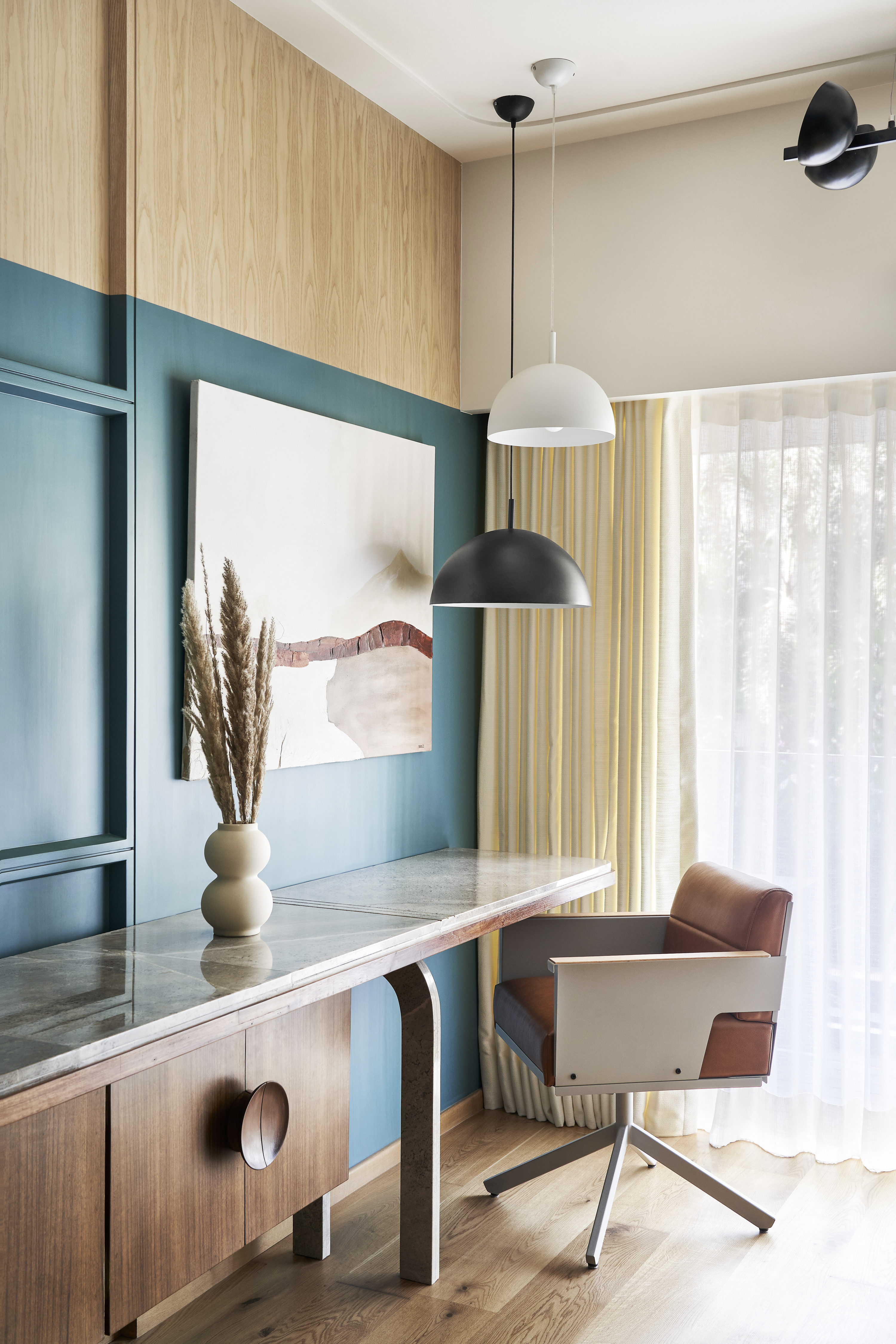
Spending long hours in a static lighting environment can be harmful to our health and can even hamper our circadian rhythm. We need lighting environments that can keep changing; meaning we need more light in the morning and less in the evening. Automated lighting is a good bet when you need to keep changing the illumination in the room.
For your work-from-home schedule, add lighting that adapts to your needs and changes based on the time of day. One way of doing this is by choosing multiple layers of light, as well as dimmers that can help you customize your lighting environment.
If you have a compact home office, and not enough space for several fixtures, perhaps hang two ceiling lights instead of one. In times of need, both can be switched on for task lighting, and at other times, a single light can offer appropriate illumination and mood lighting.
9. Spotlights are ideal for small spaces
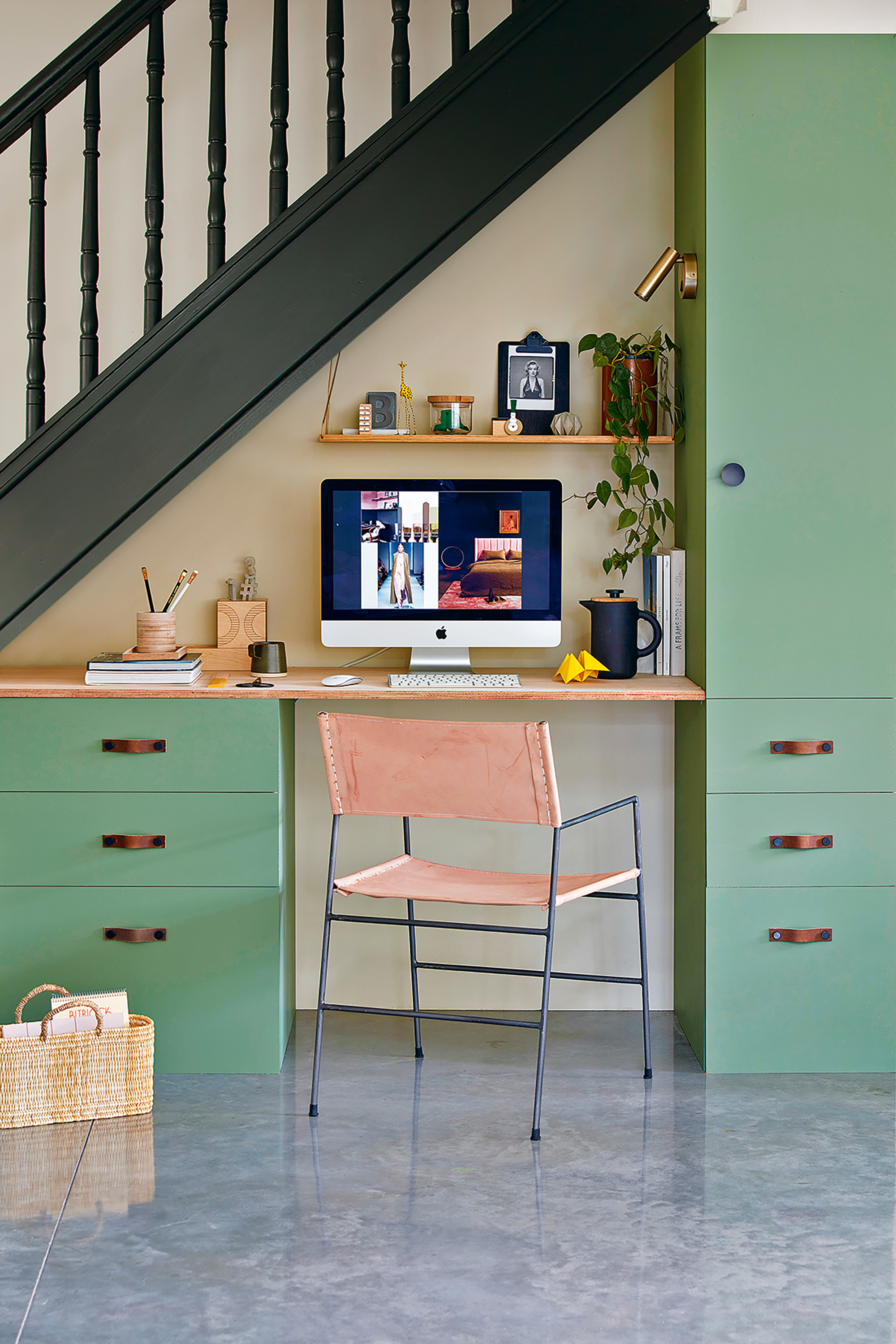
Spotlights are those small wonders that illuminate a small setup or feature and do not dominate the entire scene in any way. These are especially helpful in tiny spaces like as small bathroom lighting ideas, bedrooms, or even home offices.
Apart from these, even LED light strips or smart bulbs can add colorful ambient lighting to the workspace, as these can be installed along the perimeter of your desk, shelving, or behind the computer monitor. These barely take up wall space yet add oodles of functionality.
How do you light a dark home office?
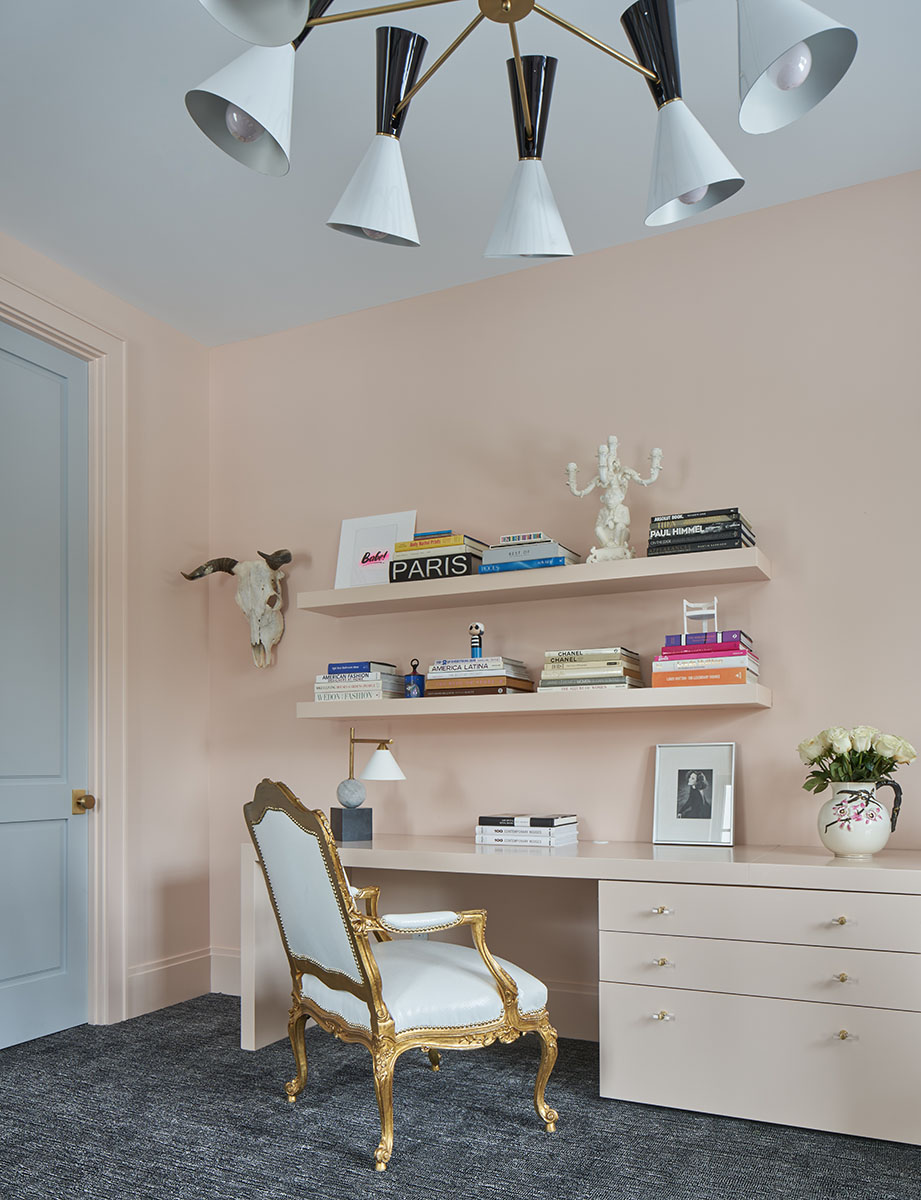
If you have a home office that doesn't receive a lot of light, consider layering different fixtures that provide focus to diffused lighting. You also want to choose between cool vs warm lighting in this space; in a workspace, it's best to choose a combination of two.
'In my home office, we designed the lighting to have four recessed downlights to light the corners of the room and a multi-bulb fixture for the center of the room that puts out warm lighting in all directions,' says interior designer Michelle Gerson. 'The entire room is lit on two different dimmable switches to control the mood and warmth of the lighting.'
Be The First To Know
The Livingetc newsletters are your inside source for what’s shaping interiors now - and what’s next. Discover trend forecasts, smart style ideas, and curated shopping inspiration that brings design to life. Subscribe today and stay ahead of the curve.

Aditi Sharma Maheshwari started her career at The Address (The Times of India), a tabloid on interiors and art. She wrote profiles of Indian artists, designers, and architects, and covered inspiring houses and commercial properties. After four years, she moved to ELLE DECOR as a senior features writer, where she contributed to the magazine and website, and also worked alongside the events team on India Design ID — the brand’s 10-day, annual design show. She wrote across topics: from designer interviews, and house tours, to new product launches, shopping pages, and reviews. After three years, she was hired as the senior editor at Houzz. The website content focused on practical advice on decorating the home and making design feel more approachable. She created fresh series on budget buys, design hacks, and DIYs, all backed with expert advice. Equipped with sizable knowledge of the industry and with a good network, she moved to Architectural Digest (Conde Nast) as the digital editor. The publication's focus was on high-end design, and her content highlighted A-listers, starchitects, and high-concept products, all customized for an audience that loves and invests in luxury. After a two-year stint, she moved to the UK and was hired at Livingetc as a design editor. She now freelances for a variety of interiors publications.
-
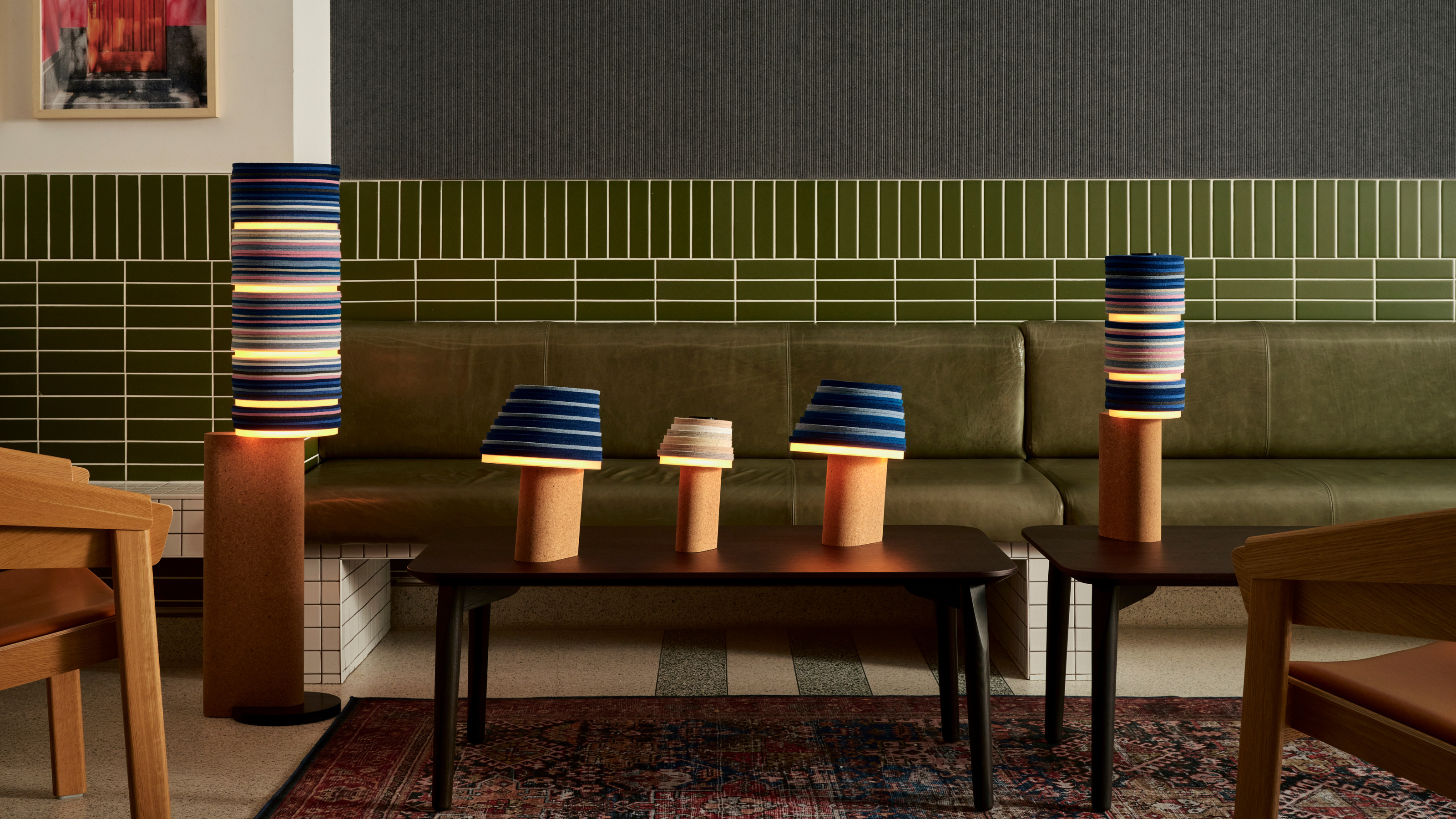 7 Sustainable Product Designs That Are Setting the Agenda for Environmentally-Conscious Homes in 2025
7 Sustainable Product Designs That Are Setting the Agenda for Environmentally-Conscious Homes in 2025From pillows made from textile waste to sanitaryware made in the world's first electric kiln, these brands are revolutionizing sustainable design — for the better
By Devin Toolen
-
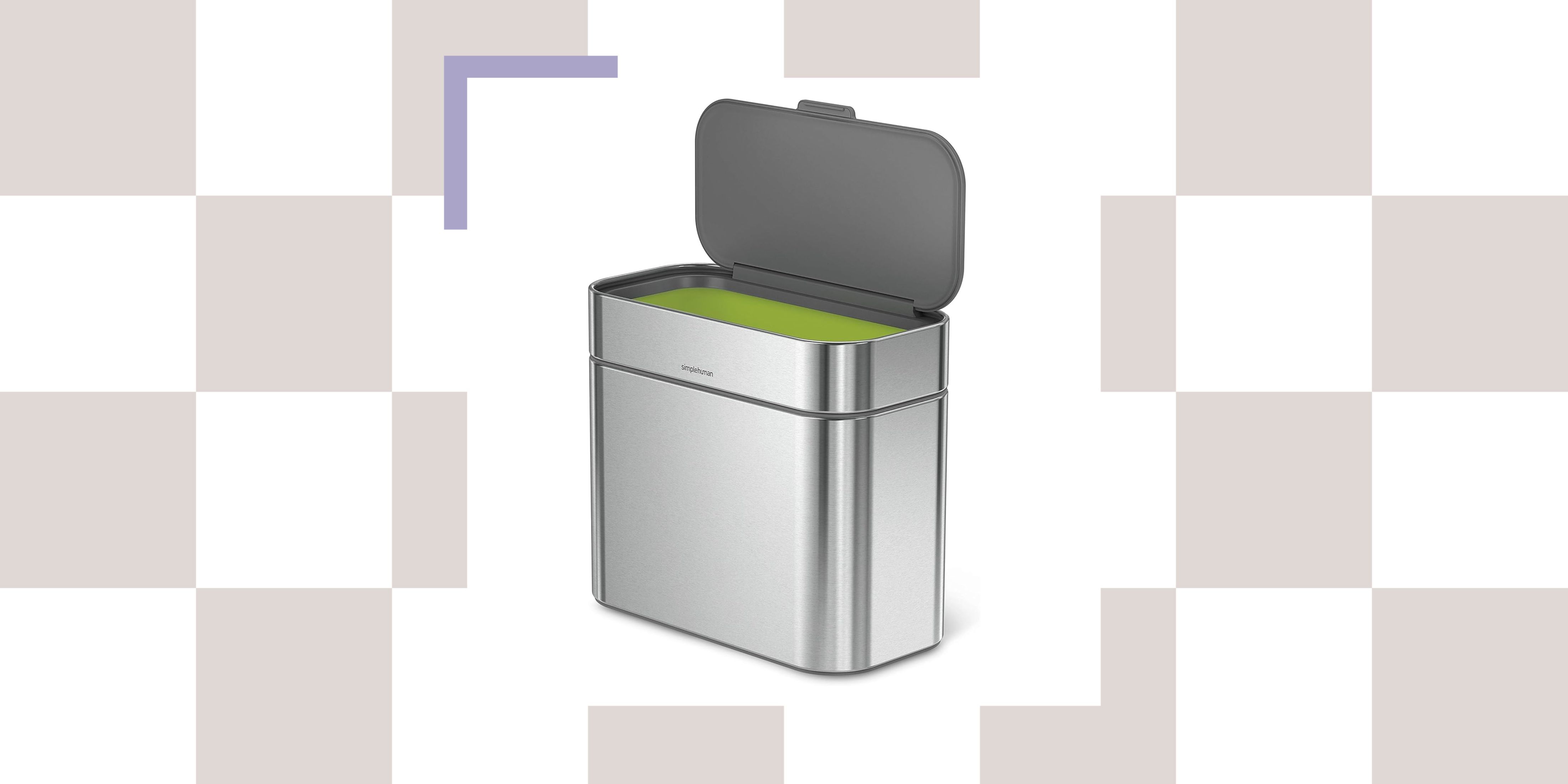 NYC's New Rules Forced Me to Find a Chic Compost Bin — Here's 4 Options Significantly Cheaper Than the $300 Fine
NYC's New Rules Forced Me to Find a Chic Compost Bin — Here's 4 Options Significantly Cheaper Than the $300 FineComposting is now mandatory in NYC. Here’s how to do it stylishly
By Julia Demer
